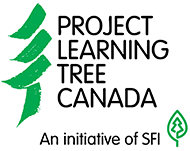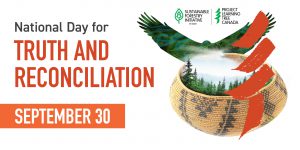News
TRUTH AND RECONCILIATION WEEK 2025September 29, 2025The following content may contain sensitive subject matter that may be stressful to some audiences as it includes topics relating to the residential school system, colonization and intergenerational trauma. To find support, you can call 1-855-242-3310 or chat online at hopeforwellness.ca and find additional Indigenous mental health resources here. Truth and Reconciliation Week leads up to the National Day for Truth and Reconciliation and Orange Shirt Day on September 30, a day dedicated to recognizing the dark history of residential schools and its survivors. This week is a time to reflect on the history and ongoing impacts of the residential school system, the assimilatory actions and is treatment, and the intergenerational impacts. This week was officially recognized in 2021 due to the hard work of the Truth and Reconciliation Commission of Canada, who devoted their time to speak to survivors, inform and educate Canadians on the history of residential schools, and create a report with 94 Calls to Action to advance reconciliation (Action 80 being the creation of the National Day for Truth and Reconciliation). Everyone has a role in continually acknowledging the ongoing impact of residential schools, challenging colonial narratives, and working to better understand Indigenous lived experiences. To make reparations for what was lost, we must continuously work to advance relationships with Indigenous Peoples based on recognition of rights, respect, cooperation, and partnership. Reconciliation may take many forms including promoting local community-based projects and initiatives, supporting language revitalization efforts, respecting cultural practices and spiritual beliefs, becoming more educated on Indigenous Peoples and their histories, and advocating for increased participation of Indigenous adults and youth in decision making processes. Below we have outlined some ways to support and participate in Truth and Reconciliation Week. Whether you are Indigenous or not, everyone can do their part for reconciliation. Attend Events:
Share Resources:
Educate Yourself and Others:
The Sustainable Forestry Initiative and Project Learning Tree Canada are committed to building and promoting forest-focused collaborations rooted in recognition and respect for Indigenous Peoples’ rights and Traditional Knowledge. Several outcomes in SFI’s 2025-2030 Strategic Direction, such as Increased integration of Indigenous Peoples’ Rights, Traditional Knowledges, and self-determined priorities into forest management practices and Increased collaboration with Indigenous Peoples, support this work. |



